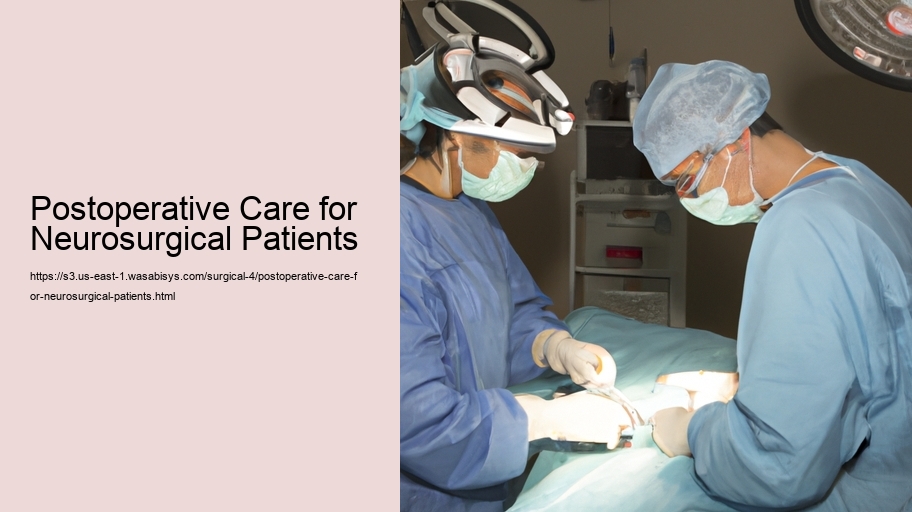Postoperative care for neurosurgical patients is a vital component of the recovery process that follows any neurosurgical procedure. Whether a patient has undergone surgery for a brain tumor, aneurysm, spinal disorder, or any other neurological condition, the postoperative period is critical for ensuring a successful outcome and optimizing the patient's return to daily life.
The journey of recovery begins the moment the patient emerges from the operating room. Neurosurgical patients are often transferred to an intensive care unit (ICU) or a dedicated neurosurgical recovery area where specialized medical staff can closely monitor their vital signs, neurological status, and overall well-being. This vigilant monitoring is essential as it enables the early detection and management of potential complications such as bleeding, swelling, or infection.
One of the primary concerns in the immediate postoperative period is managing the patient's pain. Neurosurgery can be invasive and might result in significant discomfort. Effective pain management not only provides relief but also facilitates mobility and respiratory function, thereby reducing the risk of complications like pneumonia or deep vein thrombosis. Pain management strategies can include medications, nerve blocks, and patient-controlled analgesia pumps.
Another cornerstone of postoperative care is the management of neurological status. This includes regular assessments of the patient's consciousness level, motor function, sensory perception, and cranial nerve function. Any changes or deviations from expected patterns can signal issues such as intracranial pressure changes or stroke, which require prompt attention.
The management of other physiological parameters is equally crucial. This involves the maintenance of appropriate blood pressure levels, hydration status, electrolyte balance, and blood glucose levels. Each of these factors plays a role in the healing brain or spinal cord and must be carefully controlled to support the patient's recovery.
Nutrition also plays a significant role in postoperative care. Neurosurgical patients may have altered nutritional needs or may be unable to eat normally due to their condition or the surgery's effects. Nutritionists and speech therapists often collaborate to assess the patient's ability to swallow and to devise appropriate nutrition plans, which may include enteral or parenteral feeding if necessary.
Physical and occupational therapy may begin early in the postoperative period to assist patients in regaining strength, mobility, and functional independence. Therapists work with patients to relearn skills or adapt to any changes in their abilities, with the ultimate goal of fostering a safe and timely return to their everyday activities.
Communication is another critical aspect of postoperative care. Health care professionals must maintain open lines of communication with the patient and their family, providing updates on the patient's status, explaining the recovery process, and setting realistic expectations. This dialogue is essential for addressing concerns, providing reassurance, and ensuring that patients and their families are active participants in the recovery process.
Lastly, postoperative care extends beyond the hospital stay. Upon discharge, patients may require continued rehabilitation services, follow-up appointments with their neurosurgeon and other specialists, and ongoing support from community resources. A detailed discharge plan that outlines medications, follow-up care, warning signs of complications, and rehabilitation protocols is crucial for a smooth transition from hospital to home.
In conclusion, postoperative care for neurosurgical patients is a multifaceted and dynamic process that demands a dedicated and interdisciplinary approach. Each patient's journey is unique, and the care they receive must be tailored to their individual needs and circumstances. With attentive monitoring, proactive management of potential complications, and a strong support system, patients can achieve the best possible outcomes following neurosurgery.
